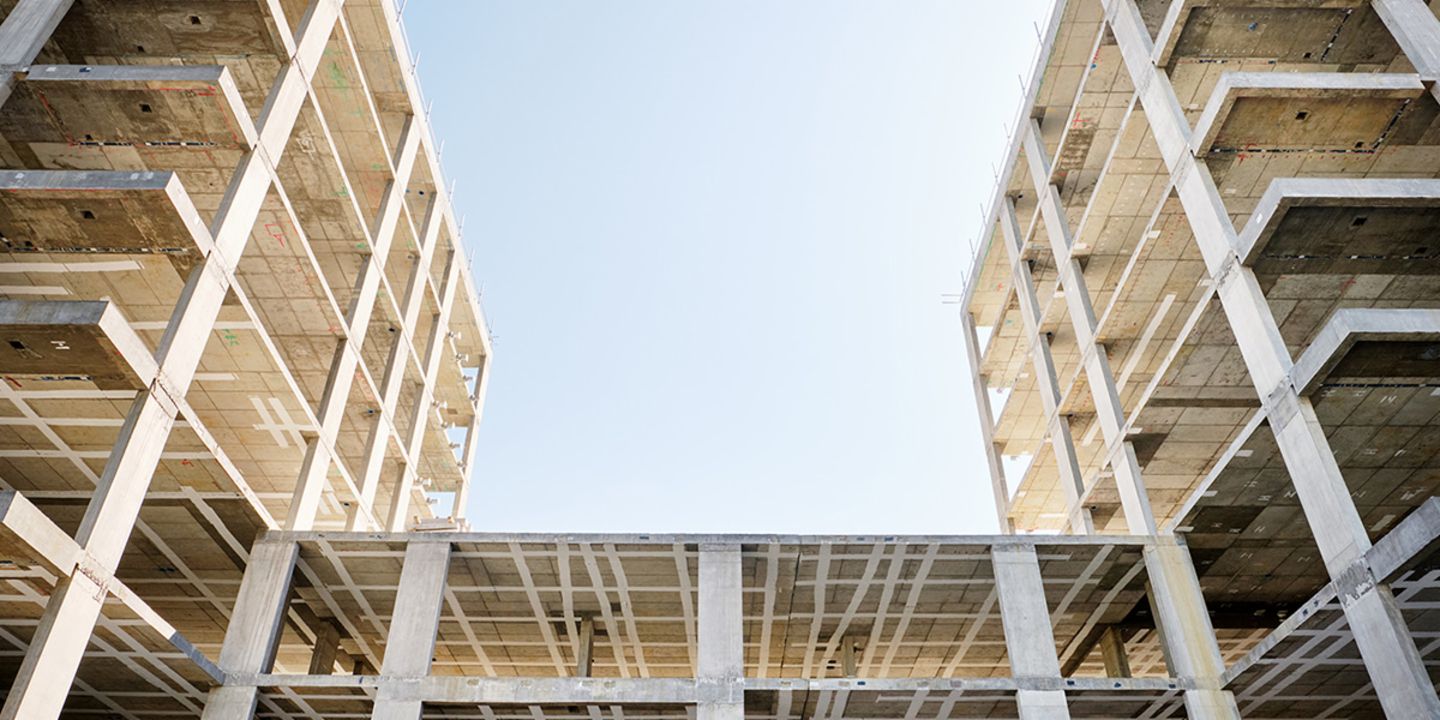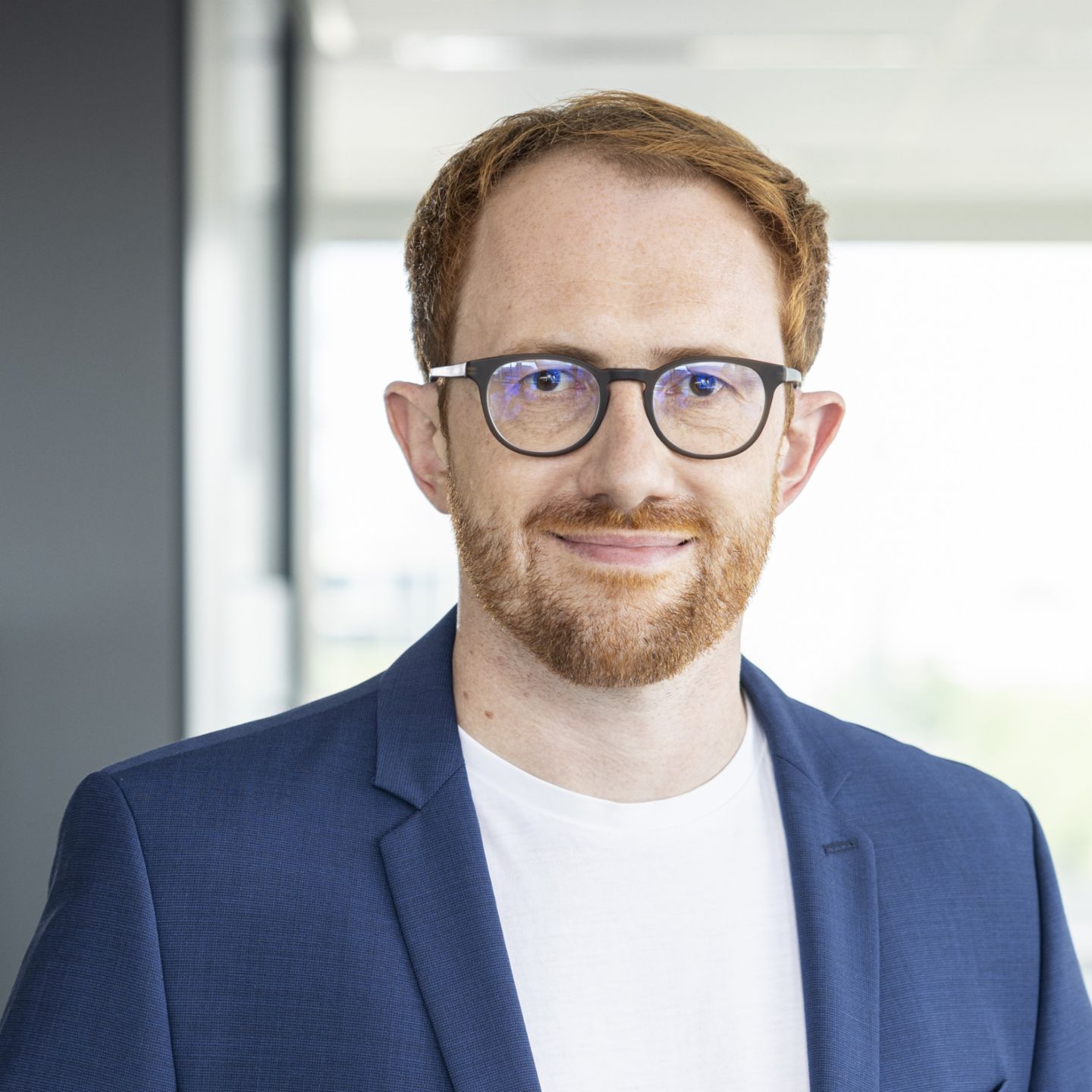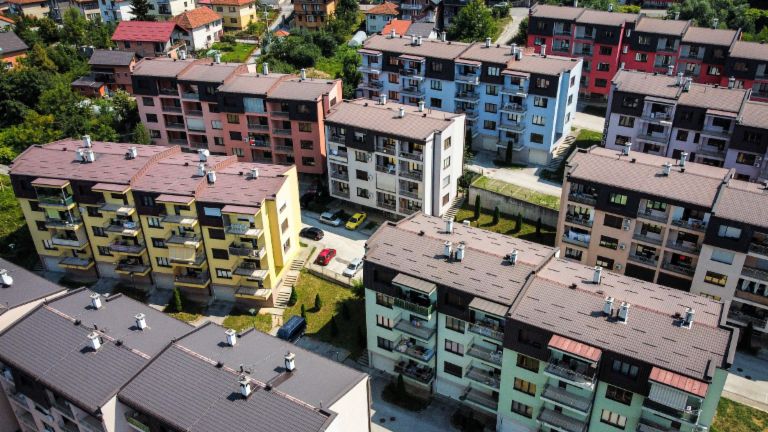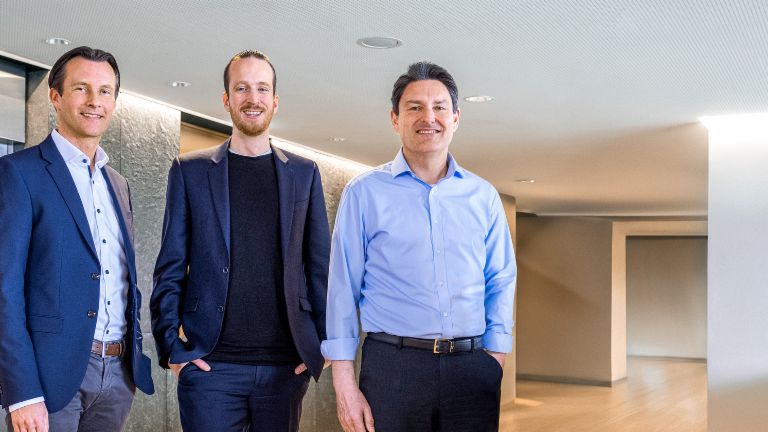EOS is bringing debt-ridden properties back into the economic cycle.
In many cities around the world, buildings are lying empty and falling into disrepair. EOS is making sure that these properties can be used again. And it’s not just potential residents and the cityscape that benefit, but the environment as well.
- Derelict buildings are a consequence of property developers going bankrupt
- How a receivables purchaser is returning these kinds of properties to the economic cycle and finishing them off.
- Building completion is good for the environment, the cityscape, and the local real estate market.
It had started off well. The façade was up, cables, water pipes and tiles were laid, windows, doors, kitchens and bathrooms were installed, and the walls plastered. At the time, the owner had named the construction project “Tychis”, the Greek word for “luck”. Costing €6 million and measuring 3,073 square meters, it would offer 2,000 m2 of office space at the front with 1,073 m2 of apartments behind them. It was supposed to be a flagship project in the neighborhood. But it wasn’t to be.
From flagship project to eyesore and back again
The owner got into financial difficulties after several years. Apartments and offices had been abandoned, and the building fell into disrepair. With its broken windowpanes, rubbish strewn on the paths and graffiti on the walls, it was the perfect backdrop for a horror movie in the middle of a solidly middle-class residential area to the south of Athens, just a few kilometers from the old international airport. Not what you’d ever describe as “luck” but an eyesore.
“The building was in a wretched state,” says Karel Smerak, Director Capital Markets & Transactions at EOS. “But we wanted to give it a second chance.” The property had been left in limbo for 12 years until EOS came onto the scene. “We wanted to find a solution to allow the property to be used again,” says Karel.
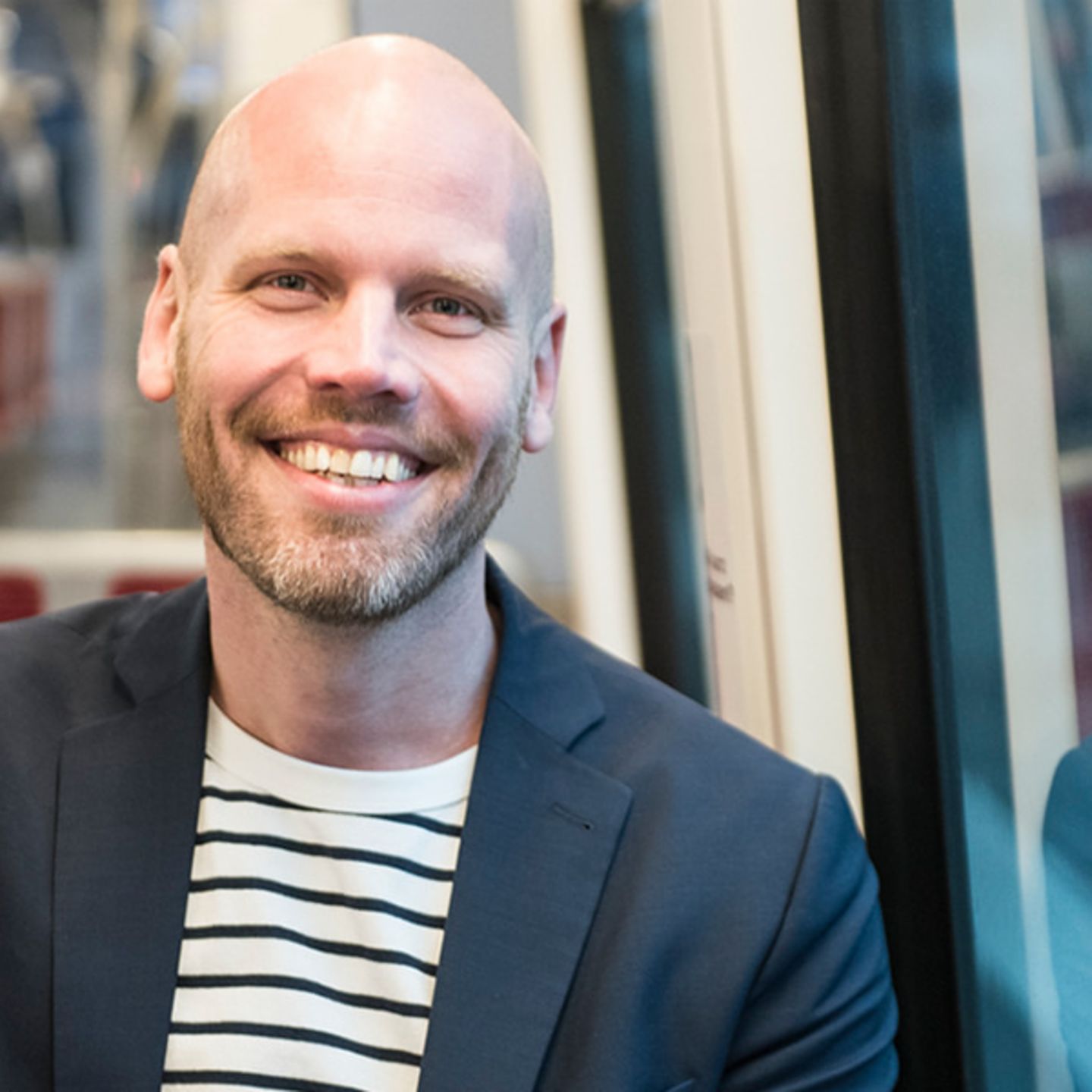
We are not building from scratch but using the existing structural fabric and creating a new building from it, one that is energy-efficient and a good match for its surroundings.
Given a new lease of life
Karel coordinates the international real estate business at EOS. He argues that investing in real estate was the logical next step for EOS. “As an experienced debt collection service provider, EOS has always invested in non-performing loans,” says Karel. “This is our core business.” It therefore made sense to expand the business model to also take on real estate and building projects whose owners were close to insolvency or where construction had already come to a halt.
With the help of EOS, these properties can be given a new lease of life and put to use. EOS buys the debt from the bank, steps in as the new creditor or owner, and tries to get rid of the debt on the property. At the same time, EOS finds ways of finishing off the property or making it usable again. “Often, the situation has been put on ice at the bank for years,” says Karel. As a new investor, EOS has the advantage of being able to negotiate with the defaulting payers or administrators using a vastly different approach that is more solution-driven and effective. “We have the capacities, the experience and the knowhow,” says Karel. “We can look at things in a constructive way, determine what the technical, legal and financial problems are and try to resolve them.” It can be a complicated process, but it’s worth it.
A fresh new look at last after 12 years in limbo
With support from EOS, abandoned warehouses and residential buildings are finally being completed. Hotels and shopping centers are finally opening or being re-opened. Aging buildings are being refurbished, and apartments are being offered to private buyers at reasonable prices. “We are bringing properties that have run into trouble back into the economic cycle,” says Karel, “even if they are already in a horrific condition.” Like the building in the south of Athens.
After 12 years of abandonment, this building is progressively getting a fresh new look. EOS purchased the property and its debts from the bank in July this year. And there has been a lot of progress since then. “First of all, the building was thoroughly cleaned, the rubbish was taken away and the graffiti removed,” says Yannis Delikanakis, the co-founder of SouthRock, the EOS joint venture. At the same time, the site was made safe and secure. The next step was to refurbish it.
A kind of “recycling” of buildings
But what was to be done with the building? As there was considerable demand for new apartments in the area, EOS approached property developers. “At the moment we are discussing two options,” says Delikanakis: “We will either enter into a partnership and refurbish the building together, or we will sell it on directly to the developer.” In either case the building will be completed so that after all these years it can finally be used again. It will create sustainable added value, and not just for the neighborhood.
“It is a kind of recycling of buildings,” says Karel. “Because we are not building from scratch but using the existing structural fabric and creating a new building from it, one that is energy efficient and a good match for its surroundings.” And there are benefits all round: for the environment, due to the reduced use of materials and energy; for the bank that gets rid of its debt; for the people who can buy the apartments and live in them; and for the cityscape that is enhanced and upgraded.
“In many cities there are properties that in some cases have been left to rot for years,” says Karel. Athens is not an isolated case. However, the “house of horrors” is the best example of why it is worthwhile bringing disused buildings back to life. “It was the biggest eyesore in the area,” adds Delikanakis, the EOS partner in Greece. “We now hope to make it the pride of the neighborhood.”
Contact
EOS in Germany
Daniel Schenk
Team Lead Corporate Communications German Market
Steindamm 71
20099 Hamburg
Germany
Телефон: +49 40 2850-2291
Photo credits: Stocksy
Истражете повеќе од EOS
